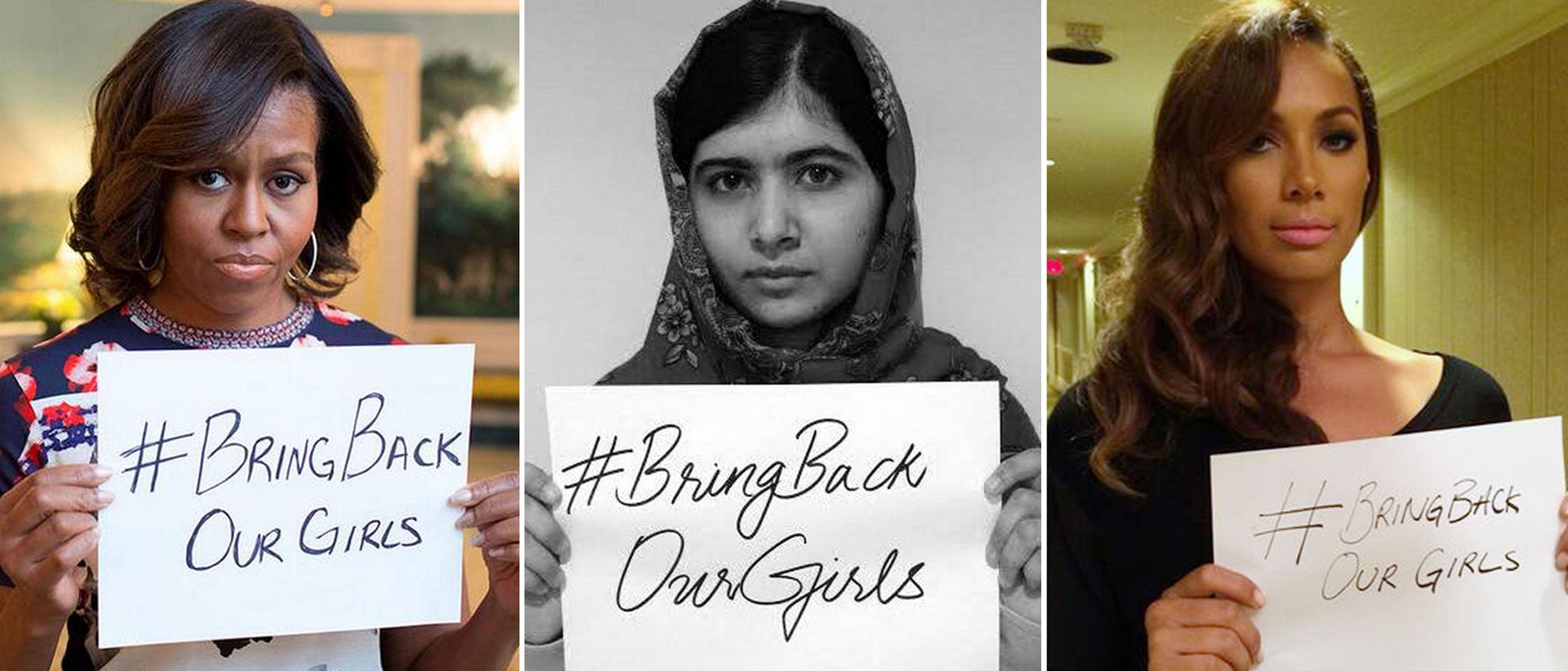The one chart that proves how fickle we are over #bringbackourgirls
Interest in the plight of the Chibok school girls drops as quickly as it peaks

Your support helps us to tell the story
From reproductive rights to climate change to Big Tech, The Independent is on the ground when the story is developing. Whether it's investigating the financials of Elon Musk's pro-Trump PAC or producing our latest documentary, 'The A Word', which shines a light on the American women fighting for reproductive rights, we know how important it is to parse out the facts from the messaging.
At such a critical moment in US history, we need reporters on the ground. Your donation allows us to keep sending journalists to speak to both sides of the story.
The Independent is trusted by Americans across the entire political spectrum. And unlike many other quality news outlets, we choose not to lock Americans out of our reporting and analysis with paywalls. We believe quality journalism should be available to everyone, paid for by those who can afford it.
Your support makes all the difference.On 14 April 2014, a group of militants from the notoriously brutal group Boko Haram broke into a school in Chibok, Nigeria, and kidnapped nearly 300 schoolgirls. More than 200 remain missing a year after their abduction.
The girls were taken in the dead of the night and militants, who in recent years have understood and capitalised on the power of social media, posted footage of their hostages online within a propaganda video soon after. Boko Haram's leader Abubakar Shekau vowed to marry off the girls to fighters or sell them as slaves. There are fears he has since carried out his pledge.
The world responded to the video on social media with the viral hashtag #bringbackourgirls. The hashtag, started by Nigerian lawyer Ibrahim M Abdullahi, was tweeted by Michelle Obama and other influential persons of note across the world. It became something the desperate mothers of the missing girls adopted and splashed on their posters, banners, and anything else that was likely to be photographed and appear in the news.

In the immediate weeks after their disappearance the hashtag was shared almost one million times. Boko Haram had committed a number of equally appalling atrocities before but this was the first to so vigorously capture the attention of most people outside of Nigeria, and this fact gave some hope in an increasingly bleak situation.
On 14 April 2015, the one-year anniversary of their disappearance, media organisations briefly put the Chibok schoolgirls back at the top of the news agenda.
Malala penned an open letter on the same day slamming world leaders for not doing enough to secure their release. Outlets ran interviews with witnesses to the abduction and #Bringbackourgirls was tweeted 37,000 times. It is now trending once again.
But, as this chart showing related searches in the 12 months up until early April demonstrates, our interest in the campaign is as quick to drop as it is to peak. Based on the weeks and months in the year before it, our already waning interest will have soon all but disappeared. The biggest problem the campaign now faces, like most of those promoted by a hashtag, is preventing it from slipping off the radar as rapidly as it was propelled to the top.
Join our commenting forum
Join thought-provoking conversations, follow other Independent readers and see their replies
Comments